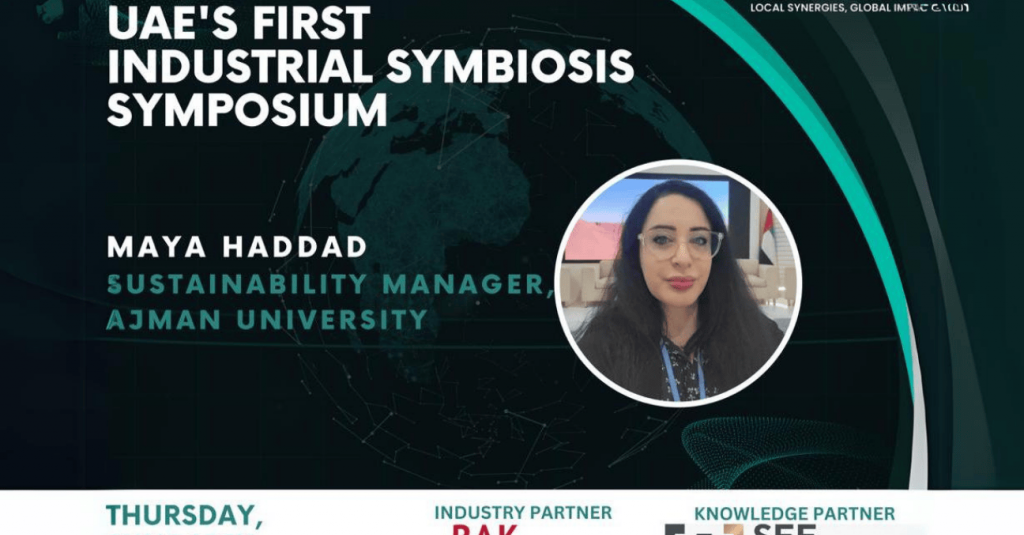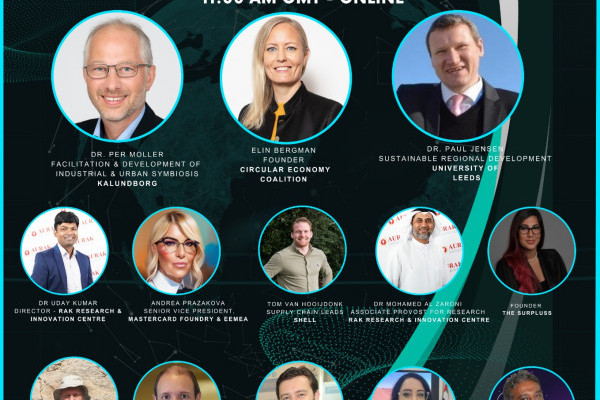News
Ajman University’s Sustainability Manager Moderates Key Session at UAE’s First Industrial Symbiosis Symposium for Circular Economy

At the UAE’s Industrial Symbiosis Symposium for Circular Economy, organized by The Surpluss, Ajman University’s Sustainability Manager, Ms. Maya Haddad, took center stage as she moderated a crucial session titled "Client Engagement & Digitization Potential for the Circular Economy in the GCC." The symposium gathered industry experts to explore innovative strategies that advance circular economy practices in the region.
Ms. Haddad’s role was recognized with a certificate for her exceptional moderation, leading discussions with notable panellists Andrea Prazakova, Senior VP at Mastercard Foundry EEMEA; Tom Van Hooijdonk, Supply Chain Lead at Shell (Qatar); and Nadia Ibrahim, Waste & Circular Economy Specialist and Board Director at the United Nations Global Compact (UNGC). Together, they explored how digital technologies and data-driven strategies can enhance client engagement while supporting the circular economy.
The panellists discussed emerging technologies like AI and data analytics, focusing on their potential to reshape business models and drive the adoption of circular economy principles. Key topics included how companies can stay ahead of technological trends, leverage environmental performance data to access green funding and integrate sustainability metrics into their operations. The conversation also touched on the economic benefits of digitization and client engagement within the circular economy framework.
The event was organized by The Surpluss, a B-Corp certified climate-tech company that helps small and medium-sized enterprises (SMEs) reduce their greenhouse gas emissions profitably. Through its B2B platform, The Surpluss converts excess resources into value, creating new economic opportunities that drive sustainability.
Ms. Haddad’s leadership in the session underscored Ajman University’s ongoing commitment to sustainability and innovation. Her contribution highlighted the university’s pivotal role in fostering collaboration between industry and academia to support the UAE’s transition toward a circular economy, aligning with the nation’s broader environmental and economic objectives.
